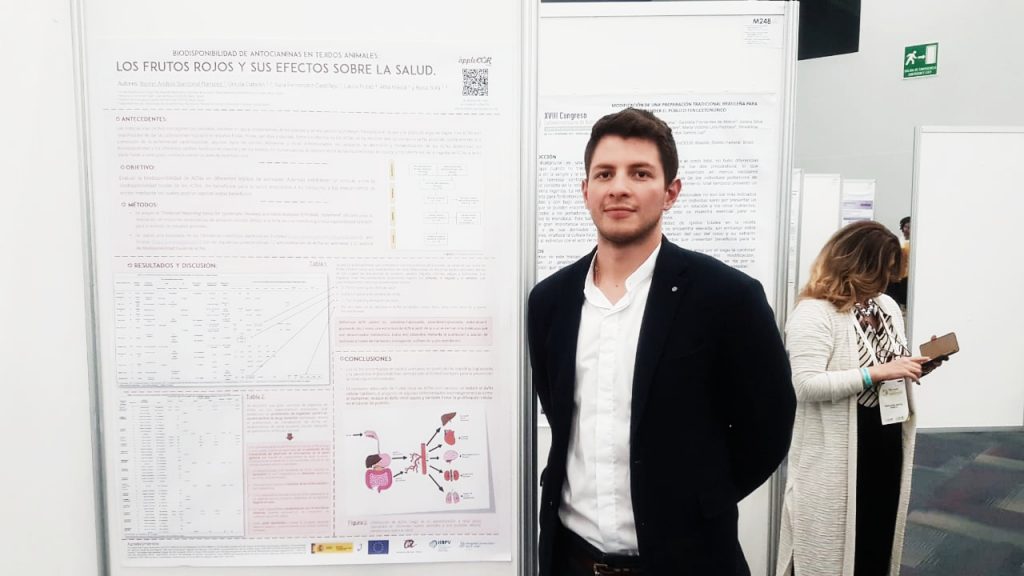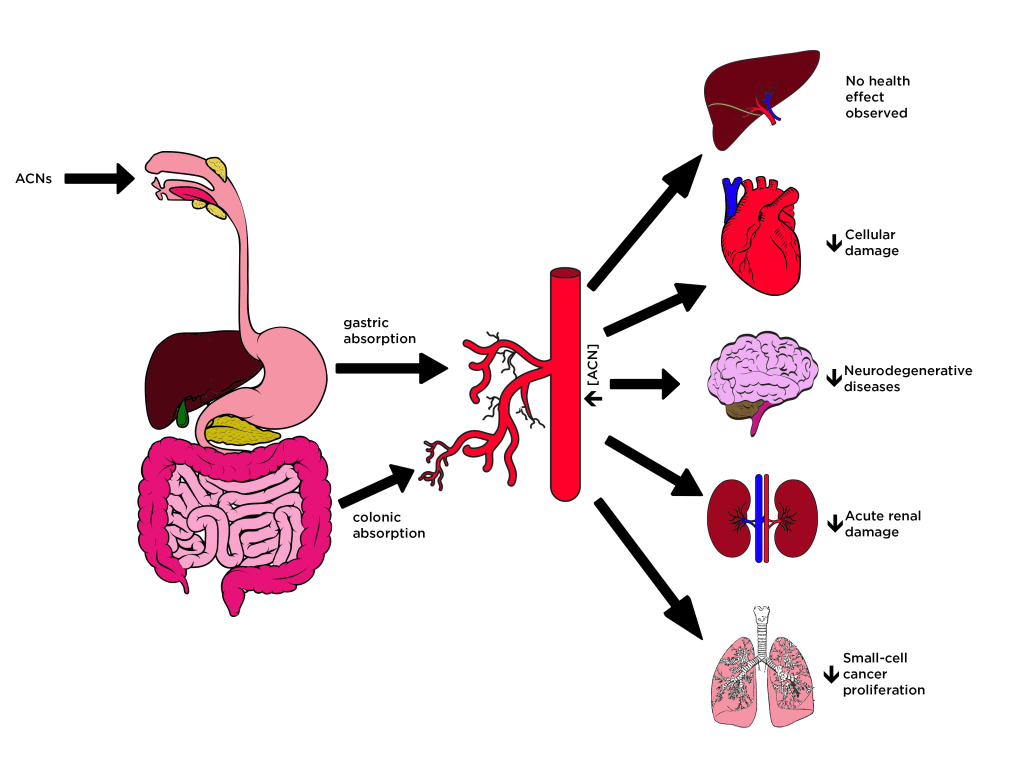12/11/2018
Berner Andrée Sandoval presents a study that reveals positive health effects derived from consumption of red fruits
The results were presented at the XVIII Latin American Nutrition Congress in Guadalajara, Mexico

The results were presented at the XVIII Latin American Nutrition Congress in Guadalajara, Mexico
The XVIII Latin American Nutrition Congress 2018, organised by the Latin America Society of Nutrition (SLAN), is taking place in the city of Guadalajara (Mexico) from November 11 to 15, 2018, under the heading “Healthy food for a sustainable planet”. The SLAN-2018 Congress brings together nutrition professionals from Latin America and the Caribbean and international specialists, to share experiences and research work and to discuss relevant issues on the food situation and nutrition in Latin America and public policy actions to improve them.
It is in this context that Berner Andrée Sandoval, granted by the Martí i Franquès COFUND Fellowship Programme, has presented the poster “Bioavailability of anthocyanins in animal tissues: Red fruits and their effects on health” (on behalf of the authors Úrsula Catalán, Sara Fernández-Castillejo, Laura Rubió, Alba Macià and Rosa Solà). The authors have concluded that the Anthocyanins (ACNs) found in animal tissues, in particular Cyanidin-3-Glucoside (C3G) and Pelargonidin-3-O-glucoside (P3G), have shown biological activity for the prevention of different diseases, so the adequate consumption of fruits rich in ACNs is postulated as a promising measure for the prevention of different diseases.

Berner Andrée Sandoval is part of the Martí i Franquès COFUND Fellowship Programme which is jointly funded by the European Union. The primary aim of Andrée’s PhD project is to advance in the knowledge of the potential health effects and mechanism of action of anthocyanins in the improvement of the cardiometabolic risk factors focused on the reduction of LDL cholesterol as the main outcome.
